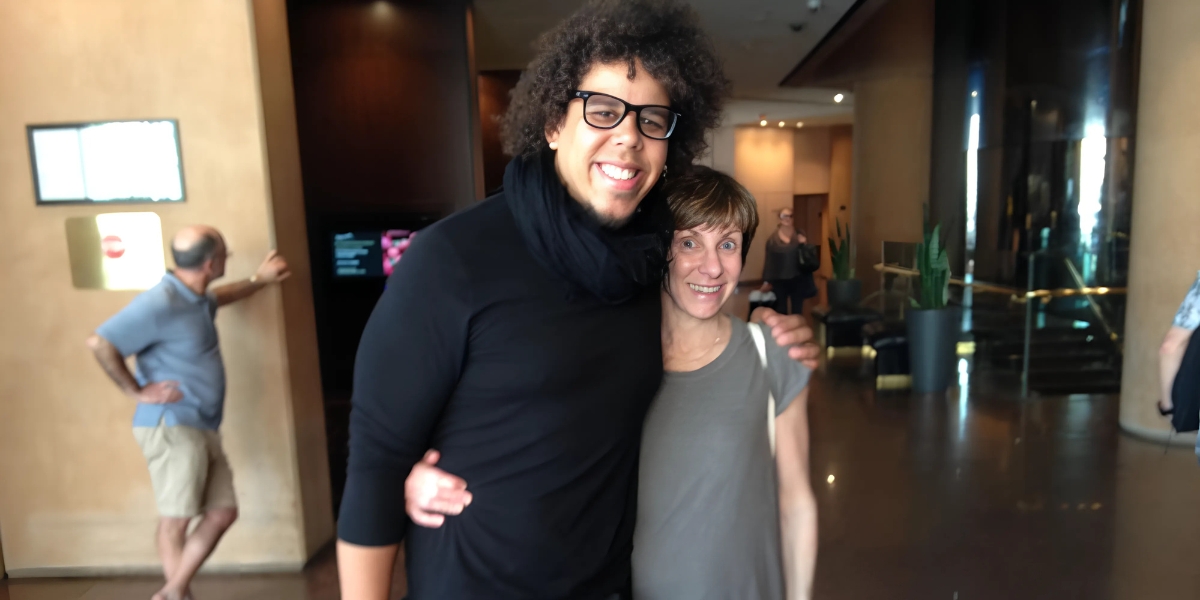By: Michael Beas
When Anne Abel boarded a plane to Australia to follow Bruce Springsteen on tour, she wasn’t chasing celebrity thrills or looking to cross off bucket-list travel. In fact, as she admits in her memoir High Hopes, she hadn’t even wanted to go. The trip was less about adventure than about survival—a way to keep herself from “falling into the abyss” after a difficult period in her life. What unfolded was a journey that blended the transcendent power of live music with the raw honesty of solitude, fear, and unexpected joy.
No Regrets, Even in Darkness
Asked whether she ever regretted her decision to fly halfway around the world alone, Abel is resolute: “I never regretted going on this trip.” She’s candid about the darker moments—loneliness, depression, even being upset by personal issues back home—but emphasizes that the concerts, the people-watching, and the very act of writing kept her afloat.
Remarkably, what began as a passive exercise—simply marking time until she could return—became a creative lifeline. Friends had asked her to send updates, and soon she found herself writing two- or three-hour emails each morning. “That was all I needed to override the writer’s block,” she reflects. In those emails, she wrote not just about concerts but about aging, culture, and life itself. One morning, an essay by Roger Angell in The New Yorker about being 93 struck a chord with her. “Aging is something I wonder about,” she confesses. “How I will be able to cope with each additional decade.” Writing through those thoughts became as essential as attending each show.
In retrospect, Abel realized something profound: “Each time I felt myself edging close to the abyss, I managed on my own to pull myself back from the edge.” That strength—discovered not in glamorous moments but in quiet persistence—became one of the memoir’s most powerful undercurrents.
Fear in the Hunter Valley
For all the joy Springsteen’s concerts brought, there was one night that veered dangerously close to nightmare. In Hunter Valley, wine country two hours from Sydney, Abel had arranged for a driver to take her to and from the show. When the concert ended, she joined 20,000 people pouring out into the night only to discover her driver wasn’t answering the phone.
The scene, as she describes it, was surreal and frightening: thousands of cars gridlocked in a one-street town, security guards demanding she move along, and a phone that—when it finally rang—slipped from her hand and shattered on the pavement. “I wanted to sit down and cry. And cry and cry,” she recalls. Instead, she took a deep breath, collected the pieces, and methodically reassembled the device. Miraculously, it worked.
The driver, it turned out, had fallen asleep. But Abel had already endured the real ordeal: the terror of being stranded at 1 a.m., alone in a foreign country, and the small but extraordinary triumph of solving a problem she once thought impossible. “I am not good at puzzles,” she laughs, admitting that jigsaws are something she always avoids with her family. But that night, piecing her phone back together was nothing less than a lifeline.
The Kangaroo Question
Friends back home had urged her to see Australia’s iconic wildlife. For Abel, though, sightseeing wasn’t the point. “My whole life I have done things I ‘should,’” she explains, wary of chasing someone else’s checklist. She was content staying in her hotel, people-watching, writing, and hoping for a glimpse of the E Street Band.
Yet in Brisbane, with a free day and no bustling lobby to occupy her, she finally agreed to a trip to a koala and kangaroo sanctuary. What followed was a whirlwind of experiences that defied her initial indifference: holding a koala that happened to match her trademark green T-shirt, feeding kangaroos, and even receiving unexpected kindness from strangers—taxi drivers and ferry staff who went out of their way to make sure she made it to the sanctuary on time.
But the most memorable souvenir wasn’t the animals. On her way back, she stumbled upon a multi-arrow signpost pointing to cities around the globe, each marked with its distance from that spot. Standing there, far from home but strangely connected to the wider world, Abel asked someone to snap her photo. “It is my favorite photo from the trip,” she says, proof that the best discoveries are often unplanned.
Music, Resilience, and Meaning
In High Hopes, Abel doesn’t just recount concerts or travel mishaps. She examines how art, solitude, and vulnerability can reshape a life. Whether navigating fear in Hunter Valley or savoring validation from a young fan who dared to dance because she did, her journey is less about Bruce Springsteen himself and more about what his music unlocked within her.
Through the beat of live shows and the silence of hotel rooms, Abel confronted loneliness, aged perspectives, and the unexpected strength of her own resilience. She may have started the trip as a reluctant traveler, but by the end, she had written her way out of the abyss and into something larger—a story worth telling, and now worth reading.
















